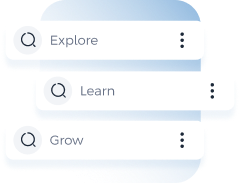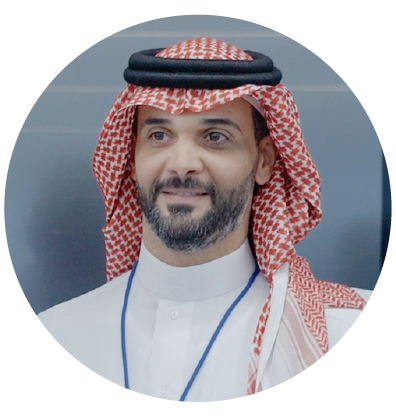
Refine Your Search
...
Explore Financial Academy
About the Academy
Discover our Rich, 60-Year Journey
Jadarat
A Comprehensive System for Skill and Knowledge Development
Governance
Meet our Inspiring Leadership
Success Stories
Check out our Clients’ Reviews and Testimonials


...


Training Partner:
Training Partner:
Program Type
Leadership Program
Training Category
Signature Programs
Program Duration
4 days
Language
English
About Program
Unlock your potential to lead and inspire with The Financial Academy's Emerging Leader Program (ELP), tailored for ambitious professionals ready to leave a lasting impact. ELP encapsulates the core of transformative leadership by blending interactive sessions with actionable insights, aiming to develop a growth mindset, master strategic communication, and exert powerful influence. This journey of self-discovery encompasses engaging lectures, in-depth case studies, and personalized coaching, all designed to arm you with vital leadership skills for today's ever-evolving financial sector. ELP not only boosts your confidence to lead but also encourages you to inspire others. The program developed in partnership with the Center for Creative Leadership, the program is a lighthouse for those determined to redefine norms, foster innovation, and steer teams toward unparalleled success. Embrace the future as a visionary leader who navigates with precision, energizes with actions, and turns obstacles into opportunities. Embark on your leadership journey—enroll in the Emerging Leader Program today.

Program Goals
Develop self-awareness and adopt a growth mindset to enable continuous development
Explore leadership within the context of social interactions and dynamics
Leverage one's unique interaction styles and strengths to establish a solid foundation for effective leadership
Master effective communication skills to build strong, collaborative teams
Enhance trust to foster positive relationships within teams and across stakeholders
Improve influence strategies to efficiently inspire and guide team members towards shared objectives & organizational goals
Enable team members by employing dynamic network and stakeholder management to cultivate a results-driven culture
Apply "feedforward" strategies to convert insights and learnings into proactive actions to facilitate growth


Project Management & Quality Assurance Manager

Audit and Fraud Investigation Manager

"The New Leaders Program surpassed all expectations. It provided us with in-depth knowledge and practical experiences that enhanced our leadership skills, helped us identify our strengths and weaknesses, and guided us in improving them."
"The Emerging Leaders Program has profoundly improved my leadership abilities and decision-making skills. The simulations and hands-on experiences have transformed how I think and engage with teams, leaving a lasting positive impact."
"The Emerging Leaders Program stands out from any other training I've attended, delivering exceptional value and impact."
"Participating in the Emerging Leaders Program was a valuable experience that enhanced our team management skills and strengthened organizational effectiveness."
Join us for an unforgettable journey of exceptional learning
The Emerging Leader Program follows a learner-centered, experiential approach designed to build foundational leadership capabilities in front-line managers. The curriculum blends theory and practice through interactive classroom facilitation, personal reflection, group dialogue, and peer learning. Core concepts such as leadership mindset, self-awareness, communication, trust, and influence are explored using real-world scenarios and workplace-relevant discussions. Participants engage in immersive activities, including a digital simulation (HydroLaos), to apply leadership concepts in a realistic, yet risk-free environment. The program also incorporates validated psychometric assessments like the FIRO-B and Influence Style Indicator to deepen self-awareness and individual insight. To reinforce application, the program includes 1:1 coaching sessions that support goal setting, action planning, and mentor engagement. This structured yet flexible approach encourages personal ownership, behavioral change, and ongoing leadership development within the workplace.

Program Structure
4–6 weeks blended learning (includes 4-day in-person module)
Program Duration
Blended Learning
Field visits
4 Core Days + Coaching
Number of Modules
Program Agenda
In Class Training
Introduction
The program objectives
Preparation stages
In Class Training
Introduction and expectations for joining
The difference between a growth and fixed mindset
Use Leadership metaphor cards to identify personal key leadership challenge
Defining the leadership versatility and the roles
Determining the time distribution of leaders: player, manager, coach, and leader
Shaping the leader’s future role distribution at work to be successful
Helium stick activity
The concept of leadership
Designing key learning competencies for personal and professional development
The stages for developing DAC at work
Exploring the interaction leadership styles with FIRO-B assessment
Group discussion focusing on both strengths and areas for development
Apply one key learning to participant’s KLC
In Class Training
Activity: Puzzle
The challenging assumption
Introducing mental models
Exploring the impact of personal biases on treatment of others
Aactivity: Spy game
Introduce the concept of building trust as a leader through the Reina Trust model
Evaluating trust-self and identifying areas for development to build trust in the workplace
The effectiveness of feedback in strengthening relation and leading others
The concept of SBI (situation-behavior-impact) a non-bias and non-judgmental framework for giving feedback
Develop your SBI skills by watching a video and then creating an SBI for one or two coworkers
Fostering trust and enhancing communication by introducing the ACTS method of creating powerful questions
Practice asking powerful questions around a real work situation
Applying one key learning to participant’s KLC
In Class Training
The line activity for introducing influence and our impact on others
Introduce ISI (Independent Schools Inspectorate) report
Identify the concept of influence and how it supports in getting results using the five styles
Launch the Hydro Simulation
The importance of stakeholders, communication, and building networks
Hydro Simulation - Part 1: focuses on interdependent teams and their collaborative efforts
Hydro Simulation - Part 2: Immersed in the simulation and make choices to shape the outcome
Discuss on what is working well, what can be improved, and what is needed to move forward
Hydro Simulation - Part 3: Immersed part 2 in the simulation and make choices to shape the outcome
Defining the strategy change
.Applying one key learning to participant’s KLC
In Class Training
Building the future: The envision and impact of emerging leaders on shaping the future of the financial industry
Crafting the future vision using Lego Serious Play activity
Creating Individual action plan based on the four-day learning of leading self, leading others, impacting the organization.
Introduce the concept of mentee and mentor
Conducting one key learning to participant’s KLC
Venture into a whole new realm of knowledge

Admission Criteria
Mid-Level Managers
Managers responsible for implementing strategic plans and achieving operational goals within organizations.
High-Potential Employees
High-performing employees being prepared for future leadership roles.
Team Leaders
Individuals responsible for guiding work teams to achieve common objectives.
Project Managers
Individuals overseeing the planning and management of projects to achieve defined goals.
Emerging Entrepreneurs
Individuals starting their ventures and seeking to develop their entrepreneurial skills.
Innovation and Product Development Professionals
Specialists designing innovative products or services and improving existing ones to meet market needs.
Language
Proficient in English (spoken & written)
Years of Experience
3 - 5 years

Application Process: Your Journey Starts Here
The admissions team will carefully review all elements of your application. The selection process will take up to eight weeks from the date of submission of a completed application.
Step 1
Online application and video interview
Step 2
Pre-selection and decision
Step 3
Interview with acceptance
Step 4
Admission Committee
Step 5
Final decision
Investing In Your Future
In a fast-paced financial sector where leadership at the front line makes a tangible difference, the Emerging Leader Program is a strategic investment in sustainable performance. By building capabilities such as trust, communication, and influence, the program prepares managers to lead through complexity, improve team dynamics, and execute decisions aligned with organizational goals. It supports a long-term shift from operational management to empowered leadership, ensuring that future team leaders are confident, capable, and aligned with the evolving demands of the industry.

Key benefits for you and your organization
In the financial sector, front-line leaders are the link between strategy and execution. This program strengthens that link by equipping managers with the leadership tools to enhance operational efficiency, boost employee morale, and uphold compliance and risk management. By improving communication, trust, and accountability within teams, organizations benefit from stronger frontline performance, faster decision-making, and better client service. The program also helps build a sustainable leadership pipeline prepared to meet the demands of a fast-evolving industry.
35%
25%
20%
10%
5%
5%
Find Out More
Enhance your capabilities with programs specifically designed to fit your goals.
Discover our program offerings
Inquiry?
If you have any questions about our programs or application procedures, we are here to help.
Contact Us
